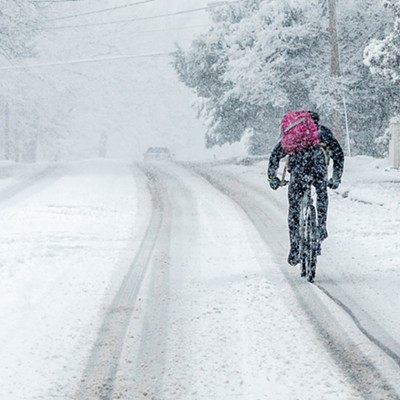If a child has an alcoholic for a parent, it’s usually not her only problem. If she’s homeless, it’s likely just one of the many pressures she faces. If her parents are abusive toward one another, she is probably having a hard time focusing on school.
“These problems pile on in children’s lives,” says Chris Blodgett, director of the Area Health Education Center of Eastern Washington, a unit of WSU Spokane. “More often than not, the adult that is the source of love and support is also the source of these stressful situations. … And these very high-stress things happen very early on in a child’s life.”
In December, Blodgett and his team won a $250,000 grant from the Gates Foundation to explore how to treat kids who experience multiple disruptive situations, or complex trauma. The team is also expecting $1 million from the U.S. Department of Justice for the same research.
With the Gates money, the researchers will help local schools identify and respond to trauma. Participating schools include Whitman, Longfellow and Bemis elementaries in the Spokane Public Schools district; Otis Orchards Elementary in East Valley School District; Broadway Elementary in Central Valley School District; and Farwell Elementary in Mead School District.
It’s the type of research that could have far-reaching effects.
Nationwide, one in four children suffers from complex trauma. However, most kids will never reach services that might help them. Even though it’s recognized that one in five kids has a diagnosable mental disorder, less than ten percent receive services aimed at treating them.
“Living with persistent stress, particular for young brains, is toxic,” Blodgett says. “Stress hormones in a young child [can be] toxic to brain cells. It can kill brain cells” and slow neuronal development in the brain.
Considering this, Blodgett says, we should consider complex trauma a public health crisis.
“If we had a virus [that adversely affected children in the same way] we would mobilize all of our resources,” he says.
According to a recent study done by Blodgett and his assistant researcher, Roy Harrington, the most prevalent trauma in local kids’ lives is the divorce or separation of their parents. Not far behind are homelessness, witnessing domestic violence and having a jailed family member.
The traumas have a cumulative effect, the study showed — the more adverse events in a child’s life, the more likely he or she will fail academically, have problems attending school regularly, experience severe behavioral problems and suffer from poor health.
Harrington says he’s seen a lot of “Aha!” moments when he explains how complex trauma can stunt a child. “Light bulbs pop up all over the room when they realize the impacts of the neuroscience,” he says. When people realize the relevance of trauma, Harrington anticipates a big change in how children are treated at school.
“When a kid comes to school in the morning, nobody knows if he has been exposed to a horrific set of experiences the night before,” he says. “And he comes in and starts throwing f-bombs around and they send him to the principal’s office. … Who are we helping by doing that? We’re certainly not helping him cope with this.”
“This isn’t just going to affect them,” Blodgett says. “It’s going to affect the kids sitting around them. … We need to help them think and react emotionally, relate to kids around them and relate to their teachers.”
But it’s more than just helping one person, Blodgett adds. It’s about helping everyone. “The goal here is to stabilize the lives of children who have been through pretty terrible circumstances … and help them to be contributing members of society.”





















